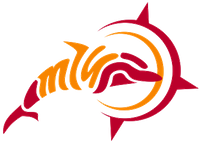One does not normally equate economic and accounting theory and practice as being relevant to guiding the construction of a progressive relevant educational practice. A relatively new concept in economics is titled ‘Triple Bottom Line’ and suggests that any economic activity actually has three components, (i) the straight forward financial aspect; (ii) an environmental aspect; and (iii) a social aspect. Traditionally accounting has been interested with the first component but with serious concerns over environmental and social impacts that globalisation is having, the concept of Triple Bottom Line or 3BL has come into focus.
One way to understand this concept is to consider an example. A family is unfortunate to endure a home invasion from a group of youths who carry screw drivers and cane knives as threats. Tensions run high during the invasion and the man of the house is cut badly on his shoulder, fortunately he survives. If we stopped the story there, then insurance people could come and place a financial figure on the loss of goods stolen, and the medical bill incurred – end of story; that’s the ‘traditional’ economics approach. 3BL would look at the fact that the injured man felt a loss of functionality, a loss of self worth, esteem and professional competence in his teaching job. This resulted in him subsequently losing his job. His wife subsequently divorced him because of his change of character on top of the financial strain that his loss of job incurred. She moved out of the neighbourhood, but because she was the main organiser of a child-minding creche for young working mothers this community facility closed down. The children were taken out of the more expensive (and better school) and subsequently did not do so well as adults as they grew up. A twist of bitter irony occurred when one of the sons served prison time for being party to a home invasion when he was 19 years old five years after the original home invasion where he and his family were a victim. This is a made up account but research done in Fiji shows this to be a representative story.
3BL is not without controversy, the main one being how one actually translates the environmental and social impacts of economic activity into measurable (and therefore dollar) values. However, I think that the above example makes it easy to see that the ‘cost’ of incidents and activities are often far more than conventional economics/accounting would suggest. Designing and implementing an educational practice starts to take on a different quality when one considers the ‘costs’ and ‘benefits’ from a 3BL perspective. Here are two assumptions that we’ve made in our school when considering it’s curriculum and pedagogical design from a 3BL perspective.
1. The overall goal of education is to help our children survive in the future world that they will grow up to be adults in. It might be to give them a ‘trade’ which will be valued by society and which allows them to be rewarded for doing that trade; it might, in another society, be the ability to be an effective tracker or hunter (such as in nomadic societies); or it might be someone who can perform songs and dances (think of our pop stars of today as well as the minstrels or daunivucu of the past); indeed it might even be as a chartered accountant in today’s modern global economy who specialises in working in 3BL!
2. An educational practices’ curriculum and the way that children and students are taught (pedagogy’) are really attempts at predicting the future. Since whatever we teach and how we teach our children will not have an impact until their late thirties through to their late forties when they start to have a significant impact on the work force through their leadership at the workplace (foreman, union leader, manager or CEO).
Taking a 3BL point of view makes a lot of sense because we have to anticipate our children’s future world that is embedded in a future social and environmental context. We can put a financial value on how much it costs to train up a young girl to be a qualified history professor (essentially the cost of tuition plus the cost of food and accommodation up to the end of the training period); but can we put a price on how ‘valuable’ this profession is if in the future society places little value on history, either it’s study, or it’s tuition? What of the study of ethno-musicology, or ancient Pacific languages, or fine art, or systems theory? Of course something obscure today, for instance astrobiology or xenobiology, maybe very important for our children if, by the time they are employable and in leadership positions, we have had contact with aliens from outer space. Looking at our recent history, particularly with the rate of change of technology (who would have predicted Moon landings, iPads and Facebook 100 years ago?), it seems that the only thing that can be reasonably predicted in our children’s future world – is unpredictability.
That may not seem like a satisfactory start to build an educational foundation, however, from a 3BL perspective it does give us a starting point namely that we have to consider training our children for unpredictability. One positive way to train for unpredictability is to have the ability to constantly learn and adapt to this ever changing world. This would suggest that our children are in for a time of constant re-learning and re-tooling over their lives. Indeed many of us are already doing this. Teaching children for highly specialised roles, particularly those that emphasise a discrete learning cycle that finishes by their late teens or early twenties, will not equip them for an ever changing future world, so this is not and effective way to teach our children to survive for tomorrow.
Since our children will be life long learners, we think the first step in formal education is to give children a love of learning so that they never consider it a ‘chore’ to be always learning throughout their lives. In formal secondary education, children acquire the skill of learning how to learn. These two skills will pretty much equip them for their lives, particularly when the world is changing, and changing fast. The final stage of formal learning that our young adults should acquire at tertiary or post-secondary training is to be taught to think innovative & creative ways; perhaps best summed up by the term ‘lateral thinkers’.
A 3BL perspective has allowed us to construct an educational programme that justifies why primary schooling should have an emphasis on fun and love of learning; why secondary schooling needs to focus on the ‘processes of learning’ and not simply facts and figure that are rote learned; finally adults are given skills in being open minded, open to change and flexible in their approach to their future working lives.
A 3BL approach also helps us to consider other aspects of a progressive educational programme. For instance, there is no doubt that the top executives of the failed energy company Enron or indeed the associated accounting firm Anderson, were highly intelligent people – their morals and ethics though were highly questionable. We surely do not want our pupils to grow up to be intelligent but amoral. Similarly there are so many environmental disasters looming over us, climate change, and catastrophic loss of biodiversity (species extinction) as being the most currently dramatic ones. The historical facts on Rapa Nui (Easter Island) suggest that we in the Pacific are not immune to carrying out the ecological rape of our environments as modern day humanity appears hell bent on doing. Global warming and sea level rises is a very real phenomena in Pacific Island countries that indicate dramatic and fast changes – imagine one’s country literally having to be abandoned as Tuvalu and Kiribati have to contemplate within one generation.
We are convinced that an education programme that emphasises social and environmental consequences to the actions we take, is the correct path to making sure that pupils are aware of these interconnected issues and thus empower them to be part of the solution. With regard to the environmental disaster that hit Rapa Nui I particularly like the quip that Jared Diamond states in his 2005 book ‘Collapse’:
What did the Easter Islander who cut down the last palm tree say whilst he was doing it? Did he shout “Jobs, not trees!”? Or: “Technology will solve our problems, never fear, we'll find a substitute for wood”?
We certainly should not be constructing an educational programme that allows our children to state such absurdities in our future world. Nor should we be constructing an educational programme that imagines that the pace of change in society is slow enough to not be of a concern with respect to our future society and environment. There’s an intellectual amusement that it’s an economic/accounting theory that leads us to these conclusions, whereas traditionally this field is associated with an emphasis on short term financial gains alone. However, I believe to not adapt and adopt this approach and mind set will end up as no laughing matter for our future generations.


